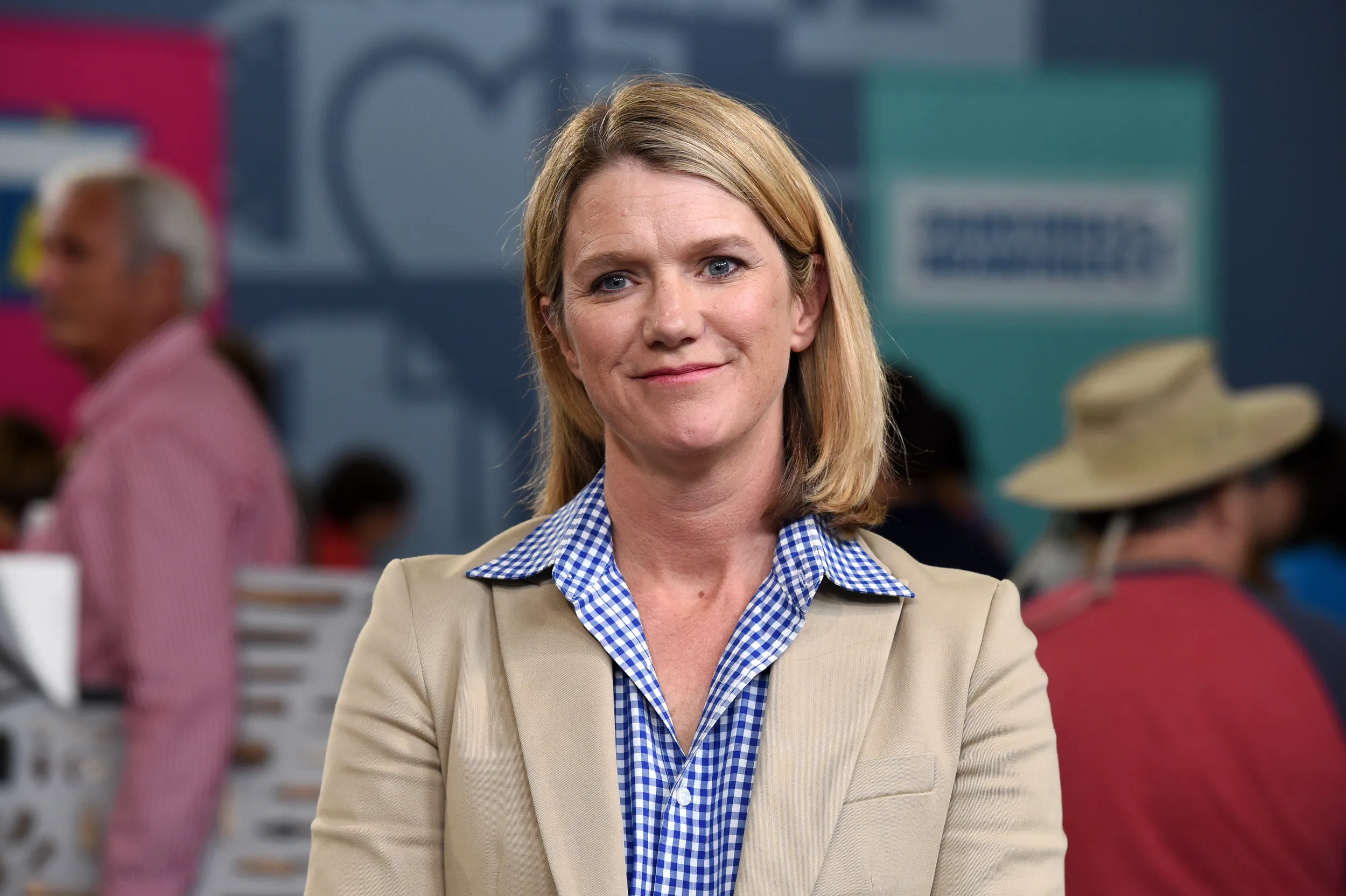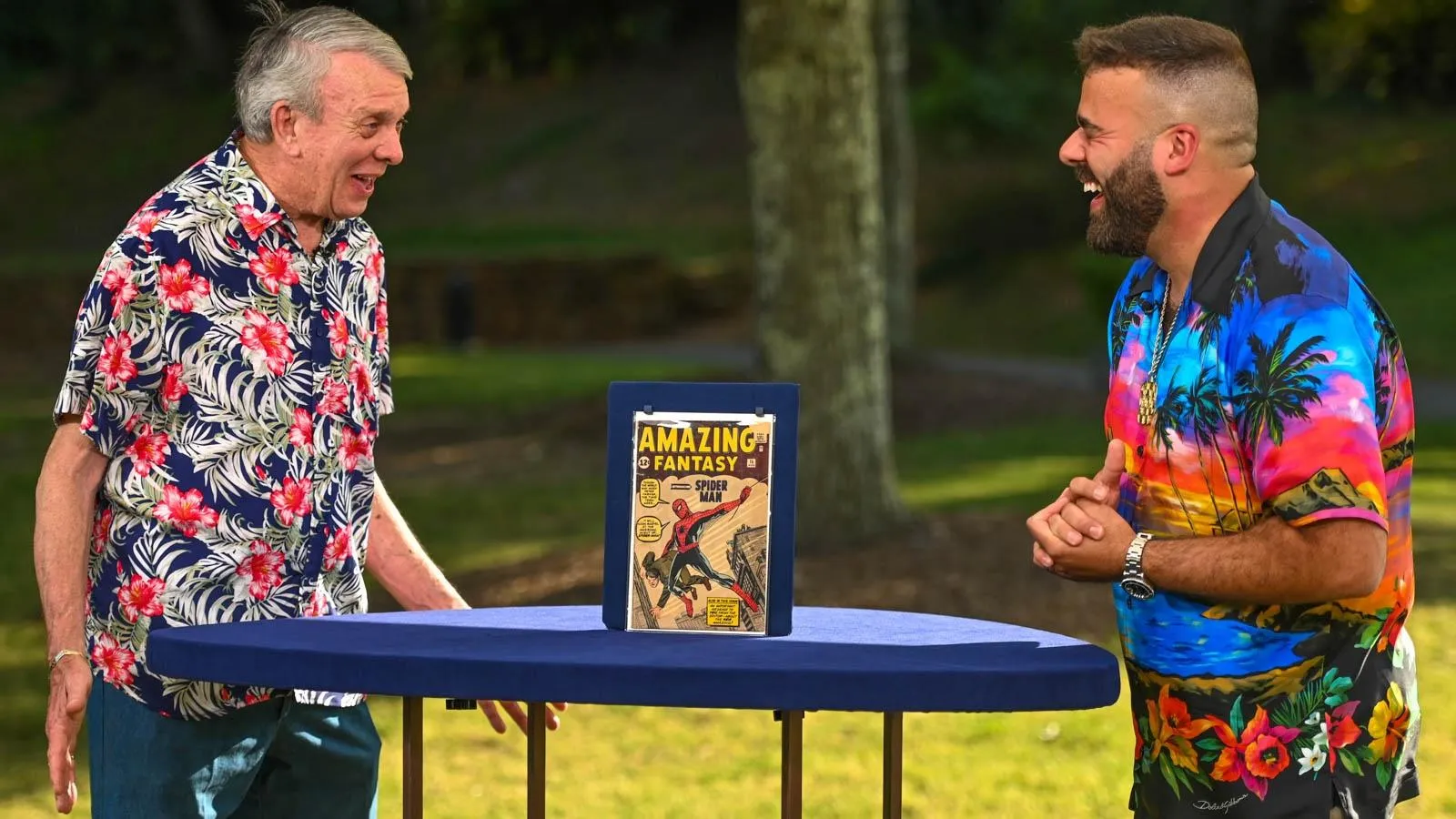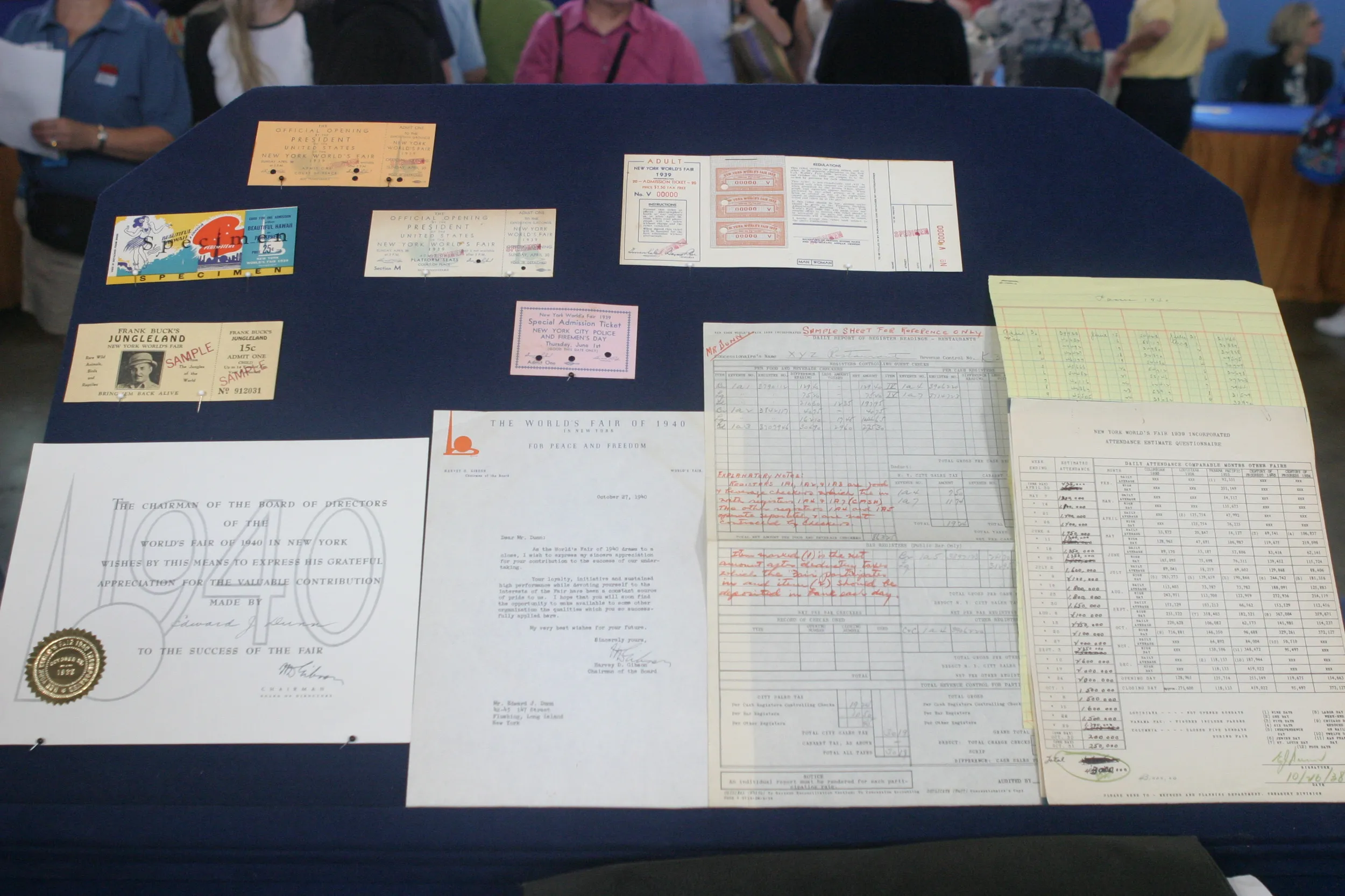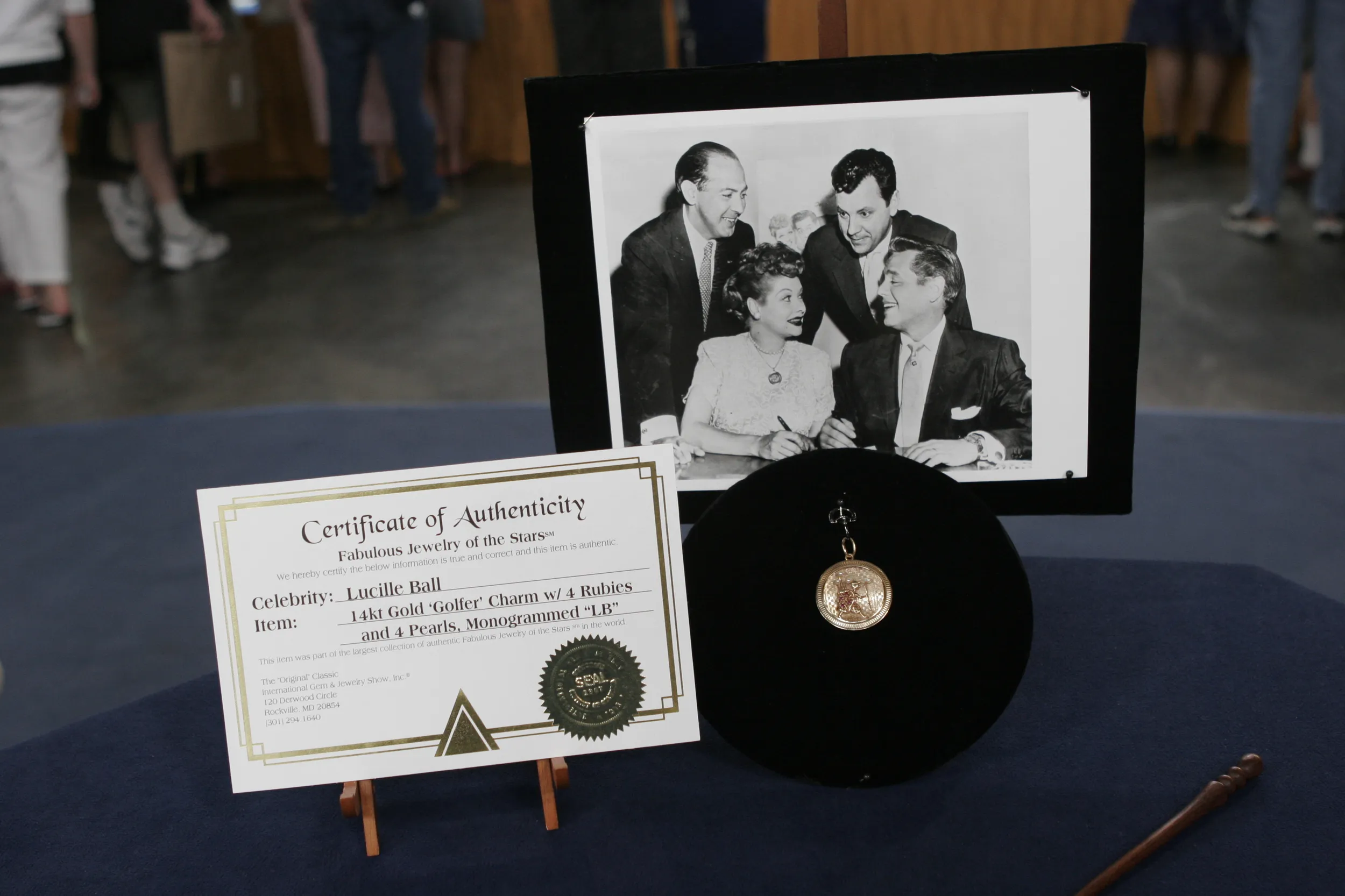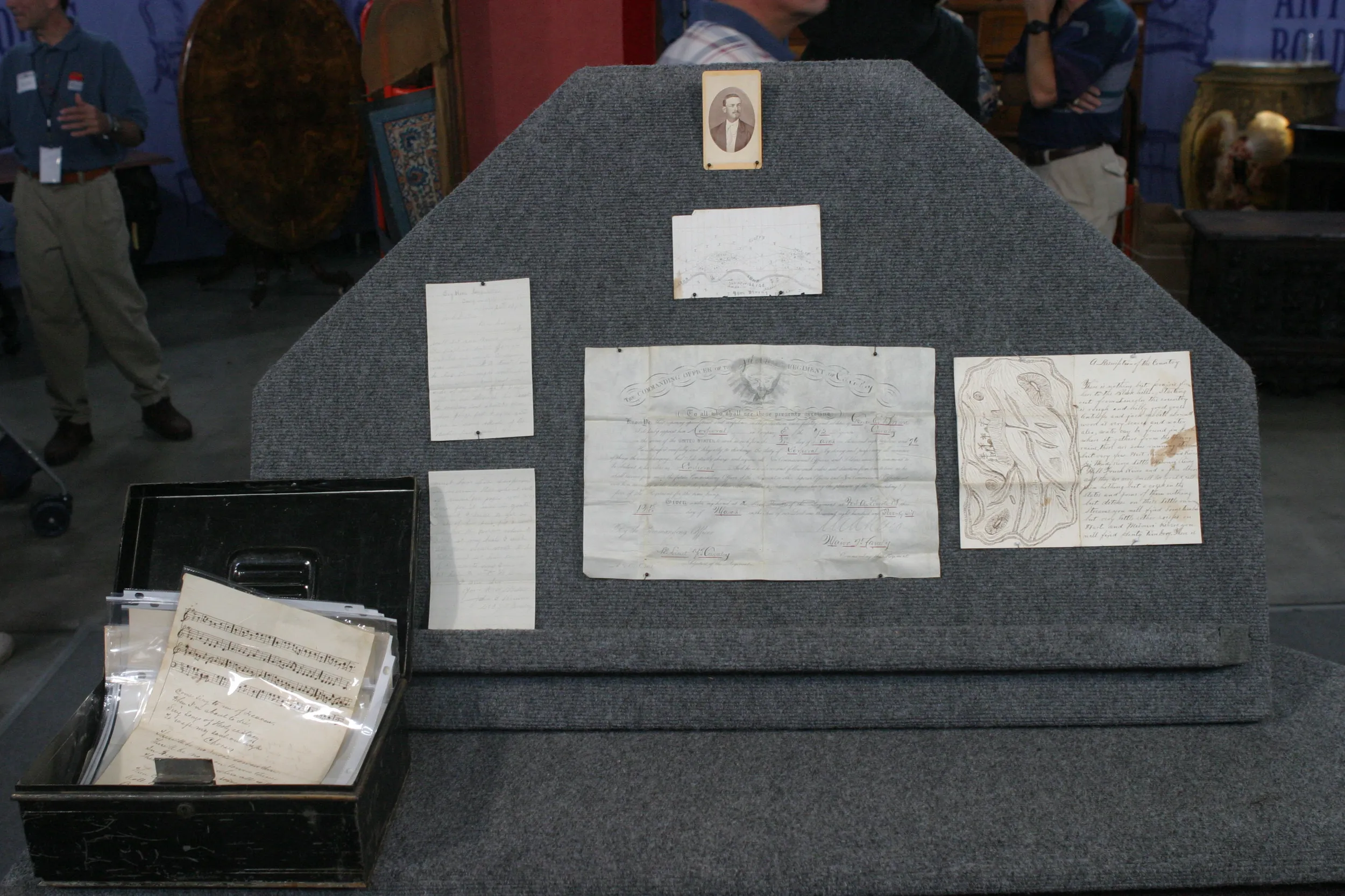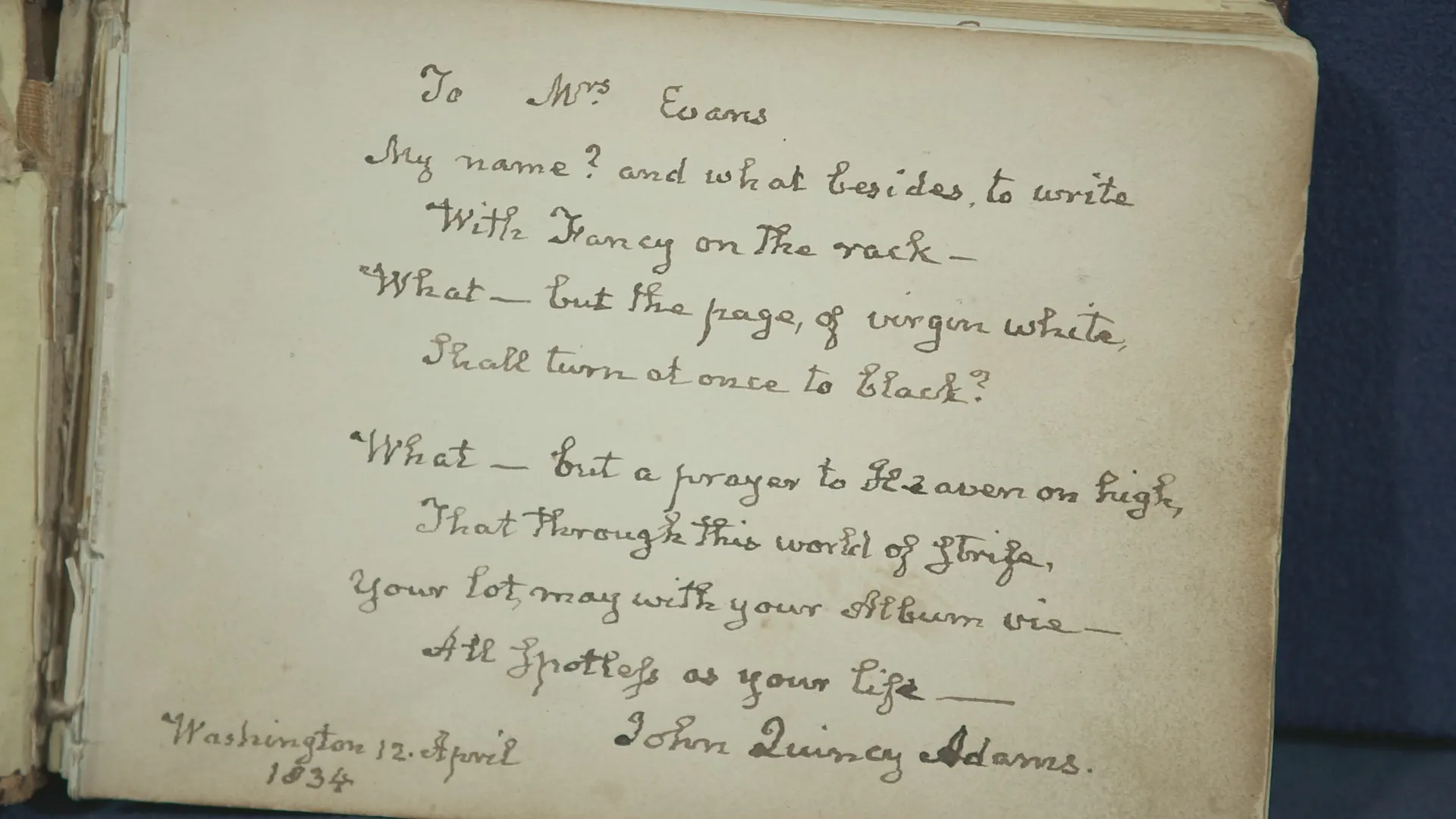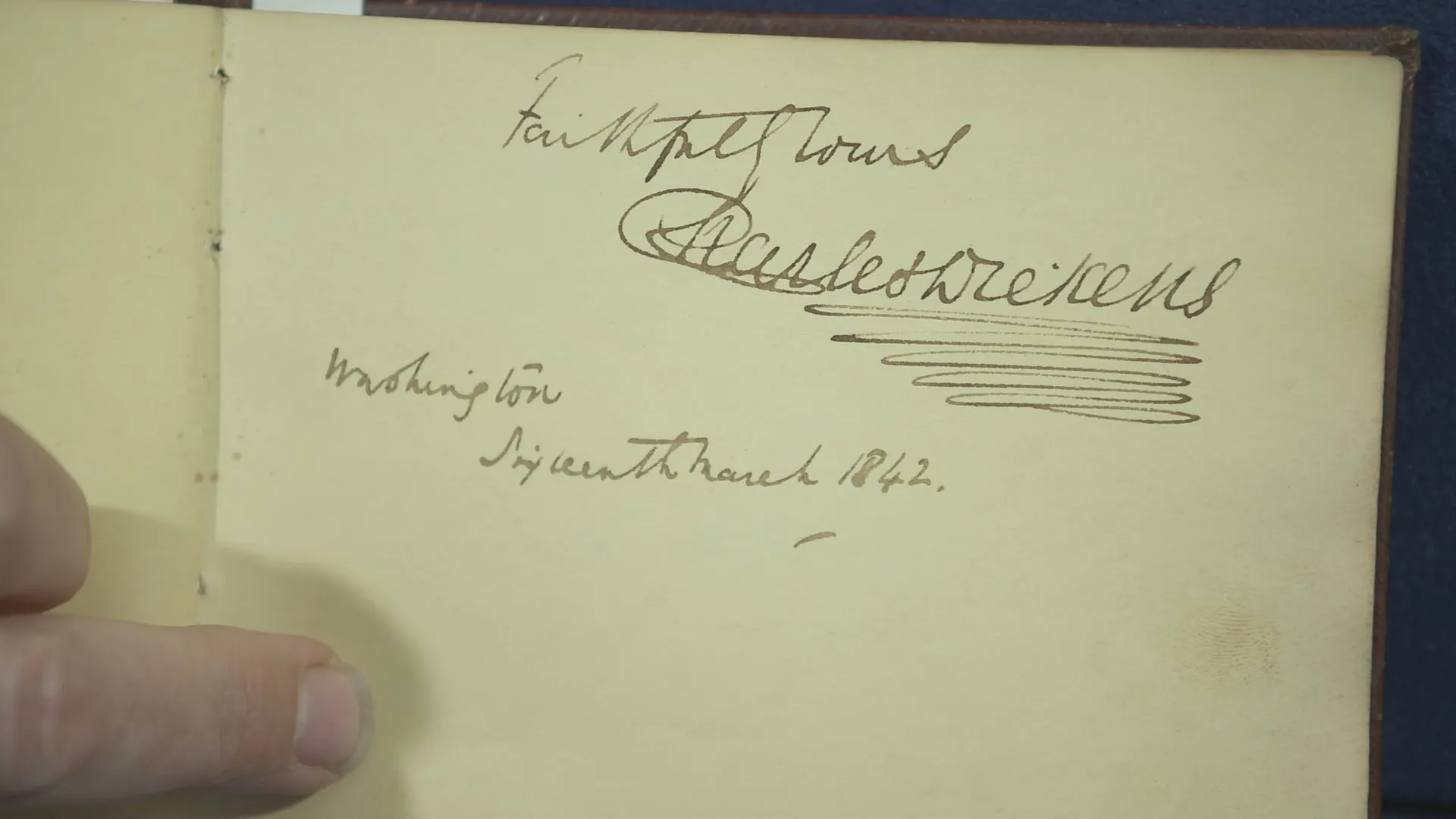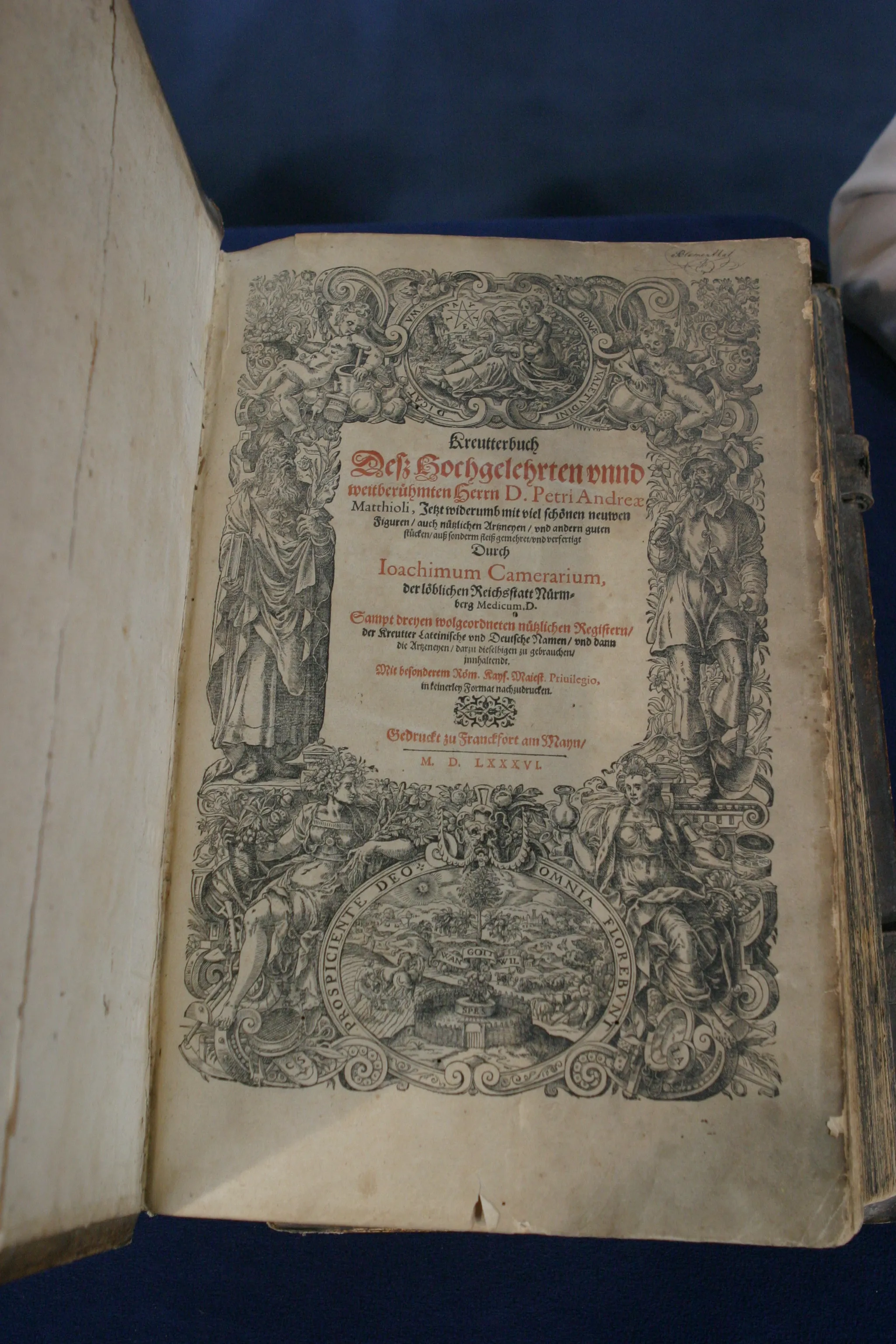GUEST: I brought in a family album, autograph book. It was passed down through my family. My great-great-grandfather passed it down on my mother's side of the family and was given to me by my uncle.
APPRAISER: Who collected this al... the autographs in this album?
GUEST: My great-grandfather's wife's mother. Mrs. Evans.
APPRAISER: This is a 19th century autograph album. Mrs. Anna Evans was the wife of George Evans, who was a member of Congress and a senator for Maine from about 1829 to 1847 or so. What's unusual about her is that she actually traveled to D.C. with her husband. At the time, most of the men elected to Congress went by themselves. They only stayed for a few months. They stayed in boarding houses, and then they went back to where, to where they lived. They did not move permanently to D.C. But your ancestor took his wife, and she was apparently the toast of the town. (chuckles) And she kept this autograph book, which is really amazing. So when you open it up, the very first page has an autographed poem by John Quincy Adams. So the date here is 1834. This is post-presidency for him. After he lost reelection, he took a couple of years off, and then he ran for Congress. So he's back in Washington as a congressman at this time, which, think about how weird that might be, to have the actual president on the floor with everybody else as a member of Congress. What's interesting is that he said at the time, if he could have any other career besides politics, he would be a poet. And here he's written this lovely poem...
GUEST: Right.
APPRAISER: ...to Mrs. Evans. So the first page is, is kind of a showstopper. It's John Quincy Adams. But it... as she goes on, you can really see how in the mix she is. On this page is Charles Dickens. Charles Dickens, at this time, also a rock star. (chuckles) This is 1842. He's in the middle of his American tour, he's in Washington, and he went to Congress almost every day to kind of watch what was going on. A few pages later, we have Davy Crockett, who at the time was serving as a member of congress for Tennessee. And this is a really lovely inscription from him. It's one of the longest inscriptions from him because he's sort of famously taciturn. He says, "Mrs. Evans of Maine "requests the hunter from the west to write his name in her album." Very sweet, very cool inscription. There are three presidential signatures in this book. There's a Martin Van Buren, and then at the very end, the very last page, has a clipped signature of James Madison and an inscription from Dolley Madison. Do you know any other information about how she might have collected these signatures, or do you have any other information about this book?
GUEST: So, my understanding was at, um, dinner parties that she would host at their house, at the... in D... In Washington, D.C., and she would make them sign the books.
APPRAISER: I think you're probably right, because when you read through them, it does seem to indicate that she, one, she's cornered them.
GUEST: Right.
APPRAISER: And two, they, they are often thanking her for her hospitality and her kindness. That's something you might say to your, to your host at the end of a dinner. And that explains why she would have access to so many political figures. The way we approach an autograph book like this is we really think about it as the sum of its parts. The John Quincy Adams, that might be $1,000 to $1,500 at auction. The Charles Dickens might be $500 to $700. The Dolley Madison with the James Madison, that might be another thousand to $1,500. The Davy Crockett, which is really the star of the piece,
GUEST: Mm-hmm, right.
APPRAISER: that would be... $10,000 to $15,000.
GUEST: Oh, wow.
APPRAISER: Yeah, that's the star.
GUEST: Right.
APPRAISER: So if you add that all up, $12,500 to $18,700.
GUEST: Wow.
APPRAISER: It's pretty nice.
GUEST: Yeah.
APPRAISER: Yeah
